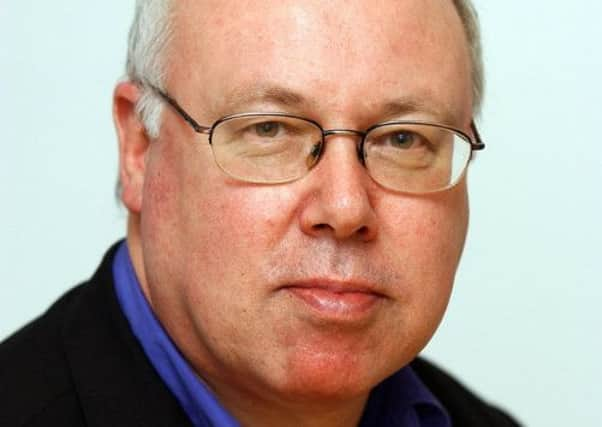Comment: Yoga a new twist to Tesco’s retail vision


Once Tesco was king of the out-of-town hypermarket that sold everything under one roof. But the recession and the internet have conspired to kill that retail model, or at least sap it of its growth potential.
Consumers are buying their electrical and household goods online, which leaves a lot of empty space in the stores. Worse, dads have a reduced incentive to darken the supermarket door.
Advertisement
Hide AdAdvertisement
Hide AdTesco’s answer is a new focus on turning its hypermarkets into family-oriented “entertainment” centres. The first has just opened in Watford. Based on a model pioneered in Asia, the aim is to entice whole families to see a visit to Tesco as entertainment rather than merely the weekly shop.
So, the 80,000sq ft Watford flagship has a community room for yoga classes and music lessons.
There is also a trendy Giraffe restaurant, a chain Tesco bought in March for £49 million.
Curiously, Tesco has just announced that it is reducing its Chinese presence, precisely where this new-style shopping “experience” is supposed to be king. The company is folding its 131 Chinese outlets into Vanguard, a local retailer, after a sharp decline in like-for-like sales. Tesco keeps 20 per cent of the merged business, which will operate under the Vanguard brand, but pays for the privilege.
This represents the end of Tesco’s disastrous attempt to turn itself into a global brand under its former boss, Sir Terry Leahy. The firm exited Japan last year, and is desperately trying to sell its lacklustre Fresh & Easy operation in America, writing off a £1.2 billion investment in the process.
Tesco also took a huge hit on unused land that Leahy had banked in the UK for expansion that is never going to happen.
Will Philip Clarke, Leahy’s successor, do any better? The jury is still out. Shorn of its public relations glitz, Clarke’s £1bn master plan seems to boil down to replacing empty shelf space with low return “attractions”, and moving the fresh meat counter from the back wall to a 360-degree hub in the store centre.
On the other hand, Clarke is a hard-boiled retailer who started life stacking shelves at his local Tesco. He is focused on boosting customer footfall, and that is exactly what Tesco needs.
Advertisement
Hide AdAdvertisement
Hide AdSensibly, Clarke is also hedging his bets and pumping nearly £500 million into digital technology to sell downloads of movies.
Maybe dad won’t need to go anywhere near the supermarket.
Art and beauty a match for aerospace exports
The good news is the gap between Britain’s imports and exports shrank in June to its smallest level in a year.
The bad news is that the UK still bought £8.1 billion more manufactured goods from abroad than we sold. Exports for the second quarter reached £78.4bn, the highest on record.
This indicates modest progress towards rebalancing the economy in favour of making things.
Peering into the latest data throws up a few surprises. Aircraft sales were a healthy £7.6bn last year.
On the other hand, works of art clocked up export sales totalling £3.5bn, while “toilet preparations” – or perfumes and cosmetics – added a further £3bn. This makes our artists and beauticians as important exporters as our aerospace engineers. Vince Cable please note.